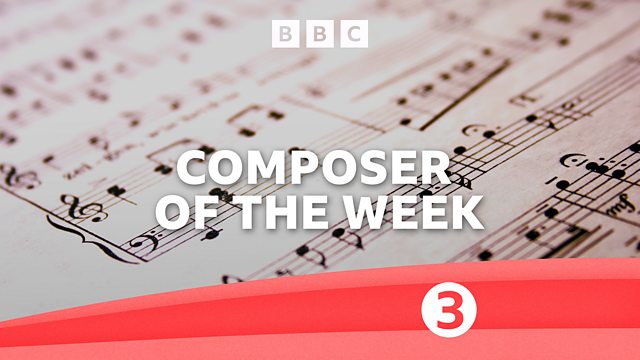
Episode 1
Donald Macleod celebrates the 200th year since the birth of Samuel Sebastian Wesley, beginning with his childhood and early career.
Forget Samuel Sebastian Wesley as a pillar of the Anglican Cathedral world. He was an eccentric, inconsistent and irascible character, who frequently abandoned his Sunday duties of conducting the choir or playing the organ, to visit the nearest river for fishing. His life is one of regret, having left the world of musical opportunities in London at an early age, to be from that point considered a composer of Church music. His career spans many Churches and Cathedrals, most of which he resigned from under circumstances relating to his neglect of duties, and his outspoken views concerning the clergy's power over music.
Wesley is largely forgotten today, but during his time he was rated highly by the likes of Gounod, Parry and Elgar, and he even got to perform duets with Rossini - his father was also a celebrated composer. Other relatives of note include his great uncle John Wesley - the preacher, and his grandfather Charles - the hymn writer. However, S. S. Wesley was illegitimate, and he and his siblings were largely shunned by their extended family.
Donald Macleod marks the bicentenary of Wesley's birth, surveying the life and music of this bad tempered composer. His career took him from London to Hereford, then on to Exeter and Leeds, moving on again to Winchester and then Gloucester. However, Wesley for most of his life wished to return to Devon where he'd been happiest in that rural landscape, fishing in the local streams and rivers. He eventually got his wish upon his deathbed, being returned to Exeter to be buried next to his baby daughter.
Throughout the week there will be a number of special recordings made for the series, including performances by the ����ý National Orchestra of Wales, the ����ý Scottish Symphony Orchestra, the ����ý Singers, and former New Generation artist, the pianist Tom Poster.
In the first of this week's exploration of Wesley's life and music, Donald Macleod looks at the composer's childhood and early career, including rare works such as his piano Waltz, the Benedictus for voices and piano, and the orchestral Overture in E.
Last on
More episodes
Previous
You are at the first episode
Music Played
-
![]()
Samuel Sebastian Wesley
Waltz (1830)
Performer: Tom Poster, piano
- ����ý Recording.
-
![]()
Samuel Sebastian Wesley
O God, whose nature (c.1831)
Performers: Choir of Clare College Cambridge, Christopher Robinson (conductor)
- Naxos 8.570318.
-
![]()
Samuel Sebastian Wesley
Duet for Eliza (c.1830)
Performers: David Hill, organ, Stephen Farr, organ
- Herald HAVPCD199.
-
![]()
Samuel Sebastian Wesley
Benedictus qui venit (1832)
Performers: Olivia Robinson (soprano), Lynette Alcántara (mezzo-soprano), Robert Johnston (tenor), Andrew Rupp (bass), Richard Pearce (piano), Paul Brough (conductor)
- ����ý Recording.
-
![]()
Samuel Sebastian Wesley
Blessed be the God and Father (1833-4)
Performers: The Choir of Magdalen College, Oxford, Robin Blaze (treble), Geoffrey Webber (organ), John Harper (director)
- Alpha CDCA913.
-
![]()
Samuel Sebastian Wesley
Overture in E (c.1834)
Performers: ����ý Scottish Symphony Orchestra, Michal Dworzinski (conductor)
- ����ý Recording.
-
![]()
Samuel Sebastian Wesley
The Wilderness (1832)
Performers: The Choir of Chichester Cathedral, James Thomas (organ), Alan Thurlow (director)
- Priory PRCD539.
Broadcast
- Mon 16 Aug 2010 12:00����ý Radio 3
Beethoven Unleashed – the box set
What was really wrong with Beethoven?
Composers A to Z
Who knew? Five eye-opening stories from Composer of the Week
Five reasons why we love Parry's Jerusalem
What is the strange power of Jerusalem which makes strong men weep?
A man out of time – why Parry's music and ideas were at odds with his image...
The composer of Jerusalem was very far from the conservative figure his image suggests.
Composer Help Page
Find resources and contacts for composers from within the classical music industry.





